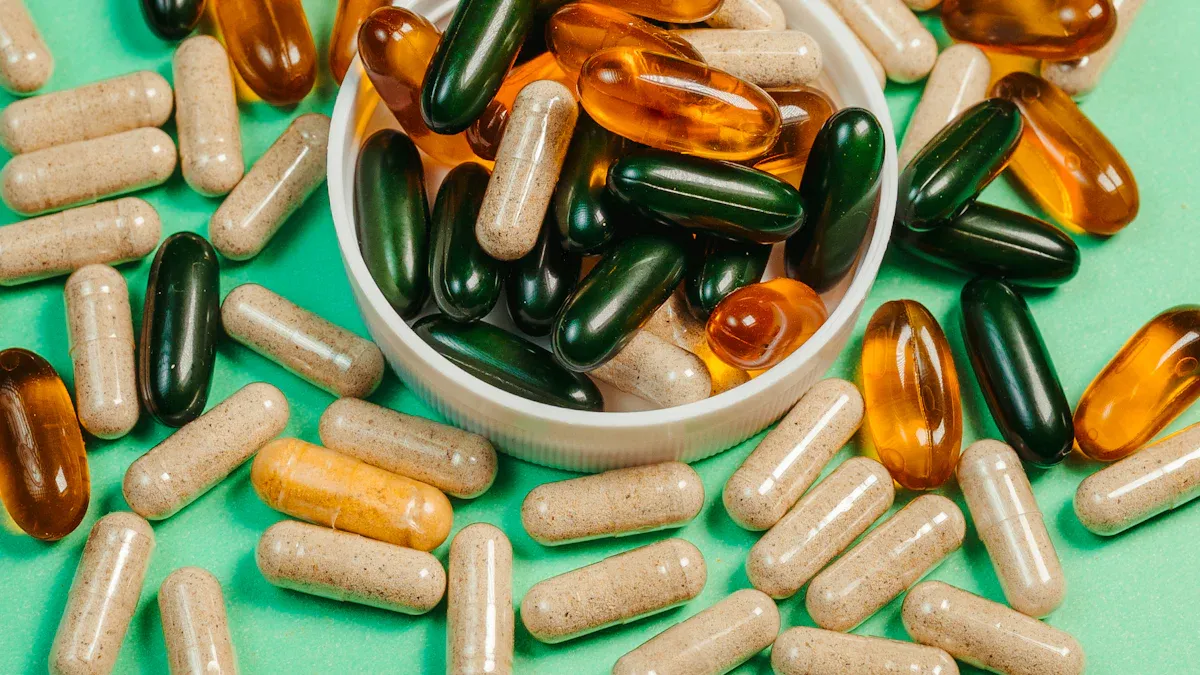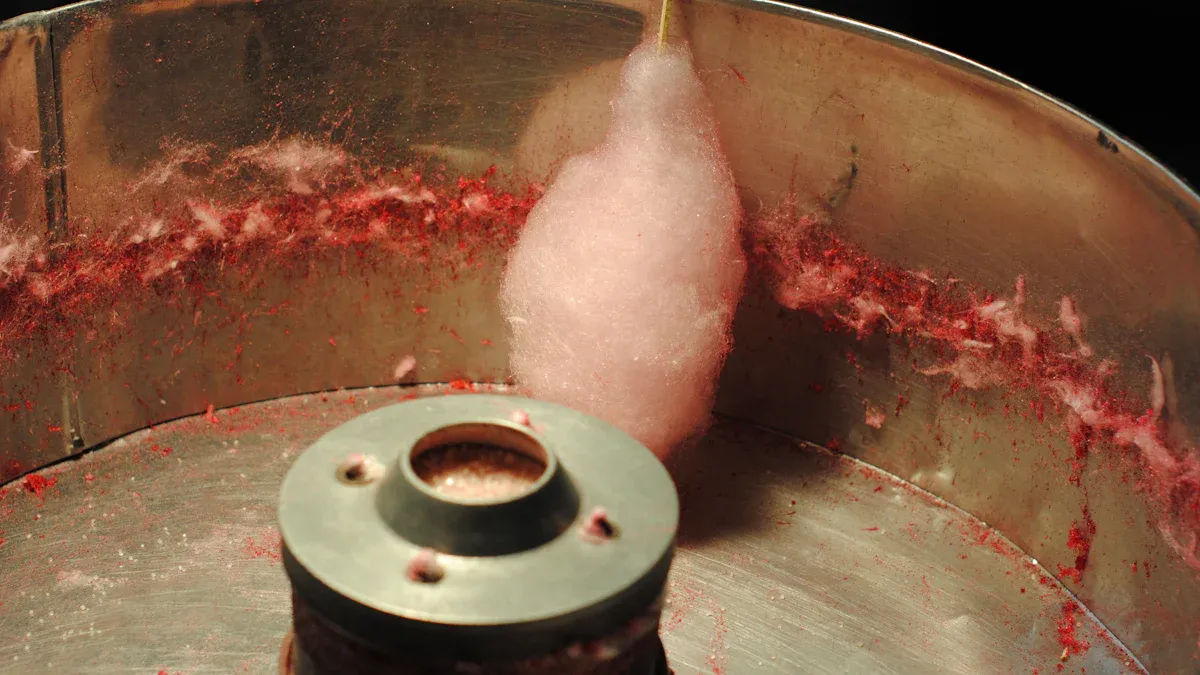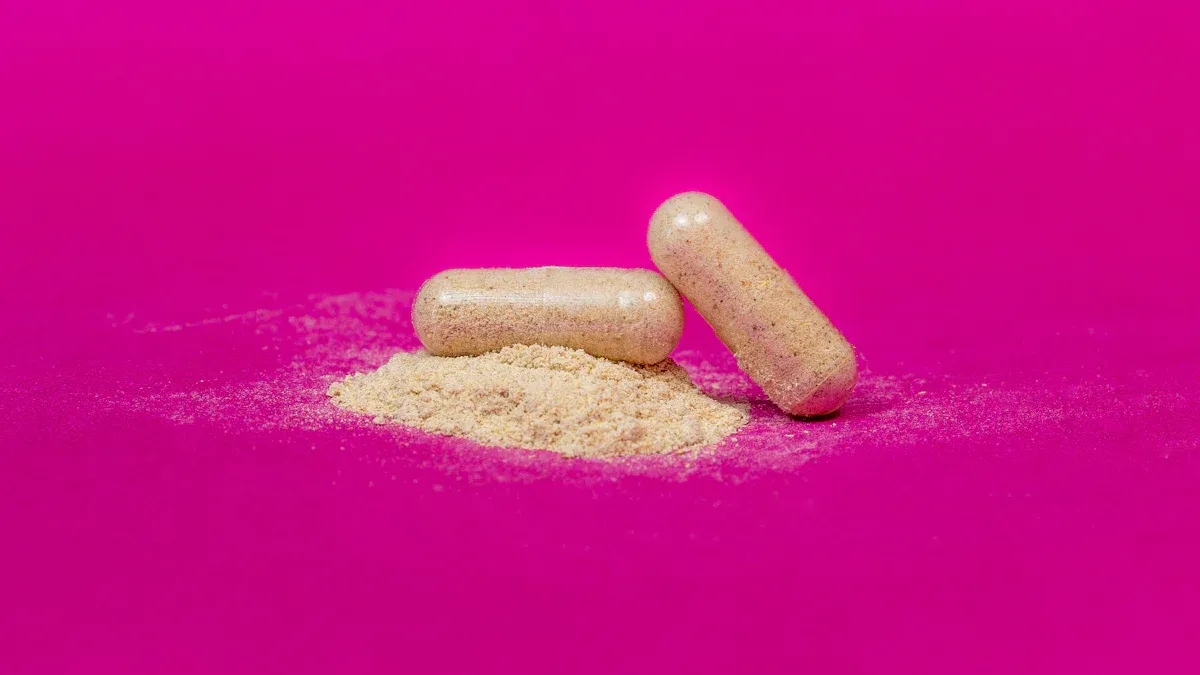Top Signs of Premium Bovine Gelatin Powder You Should Know

When you look for premium Bovine Gelatin Powder, you want to spot certain signs. Trusted grass-fed, pasture-raised sources show animal care and quality. Careful production keeps nutrients strong. Pure products have no extra additives. Reliable brands test for safety and share clear information.
Choosing the right Bovine Gelatin Powder helps you support both your health and ethical farming.
Key Takeaways
- Check the animal source and ensure the gelatin comes from grass-fed, pasture-raised cattle for better nutrition and ethical farming.
- Choose gelatin made with gentle processing methods to keep natural nutrients and improve cooking results.
- Look for trusted certifications and third-party testing to confirm safety, purity, and quality.
- Avoid products with additives or artificial ingredients by reading clear labels and ingredient lists.
- Select brands that share detailed sourcing information, lab test results, and have good customer reviews for trust and transparency.
Bovine Gelatin Powder Sourcing
Importance of Bovine Origin
You should always check the origin of gelatin powder. The source affects both safety and quality. Regulatory agencies like the FDA and the European Food Safety Authority have studied the risk of diseases such as BSE (bovine spongiform encephalopathy). They found that standard processing steps, like heat and filtration, lower the risk of contamination. Still, knowing the animal source remains important for your peace of mind. The amino acid profile also changes with the animal source. Bovine gelatin offers better functional and packaging properties than poultry or marine gelatin. If you follow Halal or Kosher diets, you need to confirm the gelatin comes from cattle slaughtered according to religious rules. Identifying the source helps you trust the product’s safety and quality.
- Regulatory bodies confirm low BSE risk in properly processed bovine gelatin.
- Bovine gelatin has a superior amino acid profile compared to other sources.
- Religious dietary laws require clear source identification.
- The physical properties of gelatin depend on the animal source.
Grass-Fed and Pasture-Raised Standards
Grass-fed and pasture-raised standards matter for both nutrition and ethics. Cattle raised on grass and allowed to graze freely are healthier. They need fewer antibiotics and hormones. This leads to cleaner, more nutrient-rich gelatin. You get higher levels of amino acids like glycine and proline. The Omega-3 to Omega-6 ratio also improves. Pasture-raised cattle support biodiversity and soil health. They help reduce the environmental impact of farming. Products from these cattle often contain fewer harmful additives. Choosing grass-fed and pasture-raised sources means you support animal welfare and get a safer, more nutritious product.
- Grass-fed cattle produce gelatin with more nutrients and antioxidants.
- Pasture-raised cattle live in healthier conditions, reducing the need for drugs.
- These practices support sustainability and animal welfare.
- Gelatin from these sources usually contains fewer contaminants.
Country of Origin and Ethical Sourcing
The country of origin can tell you a lot about the quality and ethics behind Bovine Gelatin Powder. Countries like Turkey, Germany, France, and Italy follow strict food safety and animal welfare standards. For example, Turkish companies provide Halal certificates and health guarantees. European producers meet high sustainability goals and test for contaminants. In North America, producers use by-products from the meat industry and focus on traceability. China and other Asia-Pacific countries follow global standards and conduct regular audits. When you choose gelatin from these regions, you support ethical sourcing and strict quality control.
Tip: Look for brands that share details about their sourcing, certifications, and traceability. This helps you make informed choices and builds trust in the product.
| Aspect | Why It Matters for You |
|---|---|
| Traceability | Ensures product safety and builds consumer trust |
| Sustainability | Supports ethical farming and environmental protection |
| Certification | Confirms compliance with food safety and religious laws |
| Regional Standards | Reflects strict quality and ethical sourcing practices |
Bovine Gelatin Powder Production Methods

Type A vs. Type B Gelatin
You will find two main types of gelatin: Type A and Type B. Each type has unique qualities because of the way it is made. Type A gelatin comes from acid-treated collagen, while Type B uses an alkaline process. These differences affect how you use them in food or other products. The table below shows the main differences:
| Aspect | Type A Gelatin | Type B Gelatin |
|---|---|---|
| Production Process | Acid treatment of collagen | Alkaline (high pH) treatment |
| Source Materials | Pig skin, fish skin/scales, beef hides or bones | Same as Type A |
| Bloom Strength | Higher | Lower |
| Viscosity | Lower | Higher |
| Typical Applications | Food-grade products | Industrial uses |
Type A gelatin usually has a higher bloom strength, which means it forms firmer gels. Type B gelatin has higher viscosity and is often used in industrial settings. The way each type is made also changes the amino acid profile, which affects how the gelatin works in recipes.
Gentle Processing Techniques
Premium gelatin brands use gentle processing to keep the natural structure of collagen. Enzymatic hydrolysis with enzymes like papain and pepsin helps break down collagen without harsh chemicals. This method keeps important amino acids, such as hydroxyproline, which gives gelatin its strength and flexibility. Gentle processing also protects the triple-helix structure, making the final product better for cooking and health.
Tip: When you use Bovine Gelatin Powder at home, bloom it in cold water first. Let it sit for 5-10 minutes, then gently heat it. Do not boil, as this can weaken the gel.
Gentle methods also help the environment by reducing pollution and waste. You get a cleaner, safer product with better gelling power.
Certifications and Quality Assurance
When you choose a premium gelatin powder, look for trusted certifications. These show that the product meets high standards for safety, purity, and ethics. Common certifications include:
- ISO 9001/22000 for quality and food safety
- GMP (Good Manufacturing Practice) and HACCP for strict production controls
- Halal and Kosher for religious dietary needs
- Environmental certifications for sustainable practices
Certifications mean the gelatin has passed tests for purity, low ash content, and traceability. Regulatory bodies like the FDA in the United States and the European Medicines Agency in Europe also set rules for safety and quality. Brands with these certifications show they care about your health and the planet.
Bovine Gelatin Powder Purity and Additives

Additive-Free and Non-GMO Claims
When you choose Bovine Gelatin Powder, you want a product with no unnecessary additives. Premium brands keep their gelatin pure. They avoid artificial colors, flavors, and preservatives. Non-GMO claims mean the cattle did not eat genetically modified feed. This helps you avoid unwanted chemicals in your food. Always check for clear labels that state "additive-free" and "non-GMO." These claims show the company values your health and product quality.
Tip: Products with third-party certifications for non-GMO status give you extra peace of mind.
Ingredient List Transparency
You should always read the ingredient list before buying. A high-quality Bovine Gelatin Powder will list only one ingredient: gelatin from bovine sources. Brands that share detailed sourcing and processing information build trust with you. Transparent companies often provide extra details, such as the country of origin and processing methods. This helps you make informed choices and avoid hidden ingredients.
- Look for a short, clear ingredient list.
- Choose brands that explain where and how they make their gelatin.
- Avoid products with long lists of unfamiliar additives.
Allergen and Gluten-Free Status
Allergies can be a concern with gelatin products. Bovine Gelatin Powder comes from cattle skin and bones. It contains alpha-gal, a carbohydrate that can cause allergic reactions in some people, especially those with alpha-gal syndrome (AGS). Most people with AGS do not react to gelatin in food, but severe reactions can happen. Gelatin can also contain other beef proteins, such as bovine serum albumin and bovine IgG, which may cause allergies in sensitive people.
Here are the main allergens found in bovine gelatin:
- Alpha-gal (main allergen for people with AGS)
- Bovine serum albumin
- Bovine IgG
- Muscle-derived proteins (actin, myosin, tropomyosin)
- Gelatin itself (can cause reactions in rare cases)
| Allergen Type | Source/Description | Clinical Relevance and Prevalence |
|---|---|---|
| Alpha-gal | Carbohydrate in bovine gelatin | Causes allergic reactions, especially in people with red meat or alpha-gal allergies. |
| Bovine serum albumin | Protein in beef | Main beef allergen, often affects children. |
| Bovine IgG | Protein in beef | Another common beef allergen. |
| Muscle-derived proteins | Proteins in beef muscle | Less common in beef allergy. |
| Gelatin (from bovine bones and skin) | Collagen-derived protein | Can cause allergic reactions, especially in foods, vaccines, and medical products. |
Most Bovine Gelatin Powder does not contain gluten. However, not all brands label their products as gluten-free. If you have celiac disease or gluten sensitivity, look for a clear "gluten-free" label. Some brands use fish gelatin for people with dietary restrictions, but always check the label to be sure.
Bovine Gelatin Powder Contaminant Testing
Heavy Metals and Chemical Residue Screening
You want your Bovine Gelatin Powder to be safe and clean. Non-premium powders can contain harmful substances. These include heavy metals, pesticides, and chemicals that can build up in your body over time. Here are some of the most common contaminants:
- PFAS (per- and polyfluoroalkyl substances), also called "forever chemicals"
- Heavy metals like lead, arsenic, cadmium, and mercury
- Pesticides, including glyphosate and hundreds of others
- Phthalates
These contaminants can cause health problems. Some may lead to chronic diseases or developmental issues. Heavy metals and chemicals can harm your organs if you eat them often. You should always choose products that test for these risks.
Note: The health of the cattle and the way the gelatin is made also affect safety. Good brands follow strict rules to keep out animal-borne diseases like mad cow disease.
Access to Lab Results and Certificates of Analysis
Premium brands give you proof of safety. They share lab results and certificates of analysis (COA) for each batch. These documents show the product passed tests for heavy metals, pesticides, and other contaminants. You can usually find these reports on the brand’s website or by asking customer service.
A good COA will include:
| Test Type | What It Checks For | Why It Matters |
|---|---|---|
| Heavy Metals | Lead, arsenic, mercury | Prevents toxic exposure |
| Pesticides | Glyphosate, others | Ensures chemical-free product |
| Microbial Safety | Bacteria, pathogens | Reduces disease risk |
When you see these results, you know the Bovine Gelatin Powder meets high safety standards.
Third-Party Testing Verification
You should look for third-party testing. This means an outside lab checks the product, not just the company itself. Third-party labs follow strict rules and do not have a stake in the results. Their reports give you extra confidence that the gelatin is pure and safe.
- Third-party testing adds trust.
- It helps you avoid hidden contaminants.
- Many top brands display third-party seals on their packaging.
Tip: Always check for third-party verification before you buy. This step helps you choose the safest and highest-quality gelatin for your needs.
Bovine Gelatin Powder Brand Transparency and Reputation
Clear Labeling and Detailed Product Information
When you shop for Bovine Gelatin Powder, you want clear and honest labels. Regulatory agencies like the FDA and EMA require companies to follow Good Manufacturing Practices. These rules focus on safety, traceability, and quality. However, the law does not always say exactly what must appear on the label. Premium brands go beyond these rules. They show you where the gelatin comes from, how it is made, and what certifications it holds. Some brands use advanced systems to track every step, from farm to package. This level of detail helps you trust what you buy and know exactly what you are putting in your body.
Tip: Always look for brands that list certifications, country of origin, and batch numbers on their packaging.
Customer Reviews and Ratings
You can learn a lot from other shoppers. Trusted brands often have high ratings and positive feedback. For example, Organika’s Bovine Gelatin Powder has a perfect 5.0 rating from customers. People praise its clean ingredients, effectiveness, and taste. Many say it works well for making healthy snacks and improving gut health. Shoppers also like that it comes from grass-fed cattle and contains no hormones or antibiotics. When you see many good reviews, you know the brand delivers on its promises.
- Customers value quality and purity.
- Positive reviews often mention taste and health benefits.
- Trusted brands win awards and earn high ratings in studies.
Responsive Customer Support and Return Policies
Good brands care about your experience. They answer questions quickly and help solve problems. If you have concerns about a product, you should get clear answers. Many top brands offer easy returns if you are not satisfied. This shows they stand behind their products. Companies that invest in transparency and strong support build long-term trust. They use technology to track products and keep you informed. Brands that focus on ethical sourcing and open communication earn loyal customers who return again and again.
Note: Brands that share information openly and respond to your needs show they value your trust and satisfaction.
You can spot premium gelatin powder by checking these five signs:
- Clear animal source and part transparency
- Grass-fed, pasture-raised origin
- Superior manufacturing process
- Rigorous contamination testing
- No additives or preservatives
Use these points to make smart choices when shopping online. High-quality gelatin supports your health and kitchen creations. You may notice better sleep, stronger joints, improved skin, and easier meal prep with this versatile ingredient.
FAQ
What is the best way to store bovine gelatin powder?
You should keep your gelatin powder in a cool, dry place. Use an airtight container. This helps prevent moisture and clumping. Avoid direct sunlight.
Can you use bovine gelatin powder in cold recipes?
Yes, you can use it in cold recipes. First, bloom the powder in cold water. Let it sit for a few minutes. Then, dissolve it in warm liquid before adding to your recipe.
Is bovine gelatin powder safe for children?
Bovine gelatin powder is generally safe for children. Always check with your doctor if your child has allergies or special health needs. Use the recommended serving size.
How do you know if your gelatin powder is high quality?
Look for clear labels, third-party testing, and trusted certifications. Choose brands that share sourcing and ingredient details. High-quality gelatin has no additives or artificial colors.